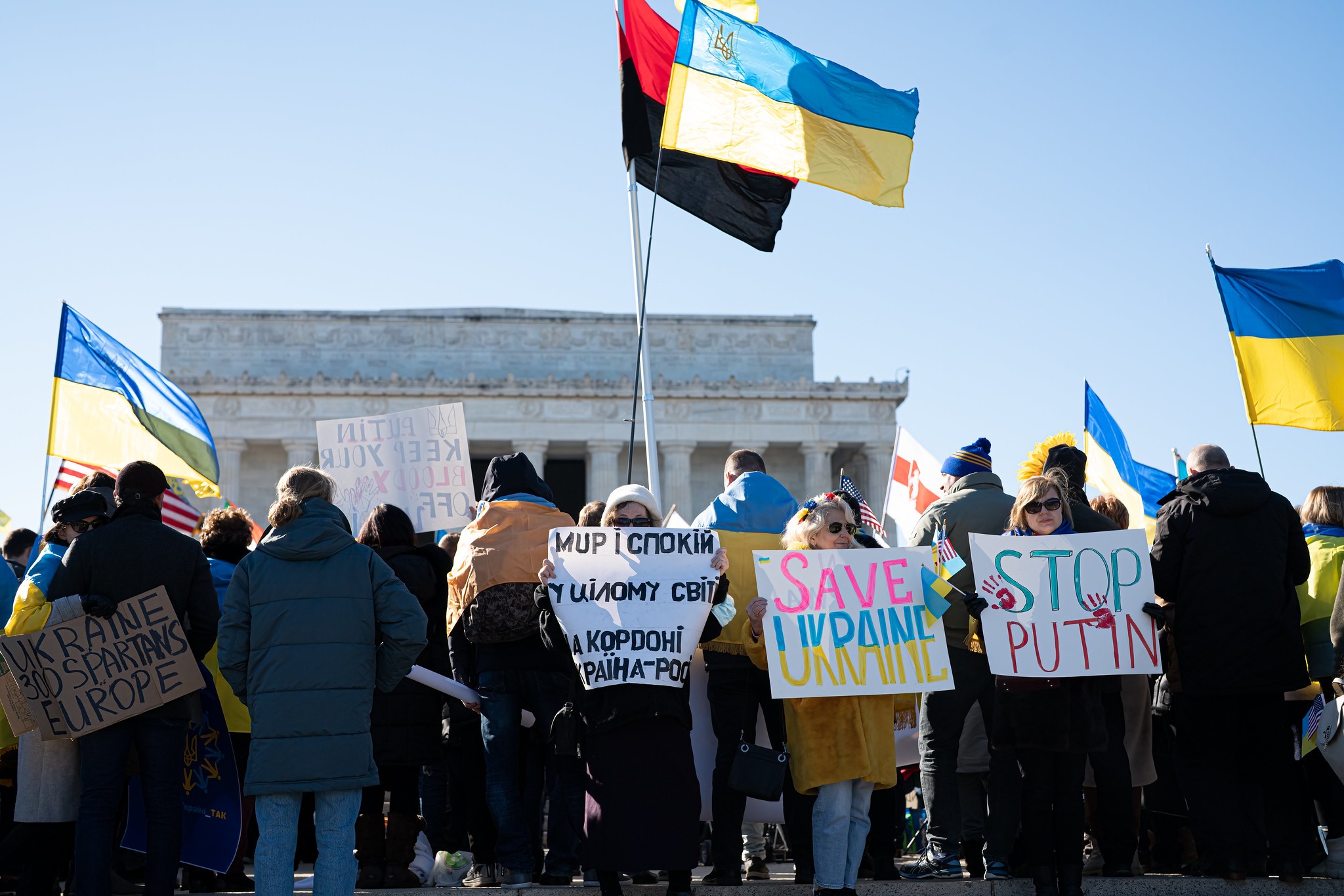Yet another win for Joe Biden.

“I’m not here to start a war,” U.S. Secretary of State Anthony Blinken very memorably told the press last week; “I’m here to prevent one.”
Blinken’s statement perhaps best articulates the foreign policy stance of the Biden Administration as it pertains to war: “Read my lips: No new wars.”
This strict “no new wars” policy may eventually see Biden known as the Anti-War President, but until those history books are written, the President must do all he can to secure his legacy in the latest conflict between Russia and the Ukraine.
Weeks ago, when the Biden Administration first started warning of an imminent, full-scale Russian invasion into the Ukraine, the claim was met with skepticism from some quarters. Pointing to the unmistakable photographic evidence of 150,000 Russian troops poised near the border, Biden has never wavered.
Putin, the U.S. President, military authorities and intelligence agencies keep insisting, is planning something big in the near future for Ukraine. And it’s nothing good.
Russia claims this has all been some terrible misunderstanding. Russian President Vladimir Putin’s administration has accused U.S. authorities of “warmongering” and of wildly over-estimating the threat Russia poses to Ukrainian sovereignty.
Putin claims these dire predictions of imminent war, or “imminent enough” war, are being overblown accidentally or on purpose to distract from Biden’s domestic challenges.
Nevertheless, President Biden is hardly alone in the international community. Other intelligence agencies and foreign governments have also been warning about information and chatter pointing to a coming Russian military incursion into Ukraine.
Russian claims of innocence are saying one thing: All those troops stationed and staged near the Ukrainian border, along with heavy artillery and all the trappings of war from stockpiled blood supplies to pontoon bridge crossings, have been saying something else entirely.
That, together with a number of recent, high-level cyberattacks on Ukrainian systems and servers, paints a very grim picture, however Putin’s government might try to spin it. Military and intelligence experts have predicted just such a hacking attack would likely precede a full-scale military incursion.
There have been other contradictory signs coming from the Kremlin, and it isn’t an accident: No, we don’t have troops preparing to invade…but we’ll be drawing them down anyway. No, we’re not planning a military invasion of Ukraine…but we’ll sign a cease-fire agreement to keep the peace- at least for the time being- brokered by French President Emmanuel Macron.
Denying President Joe Biden a political win at home by giving Macron the credit for keeping the Ukraine/Russia border region on simmer, as opposed to the five-alarm fire the situation keeps threatening to turn into any minute, may not have been Putin’s primary motive for his contradictory actions and statements of the past few weeks.
But the idea that Biden might suffer politically for seeming to cry wolf can’t have escaped the notice of Moscow, nor of Vladimir Putin himself.
The former KGB agent understands the nature of warfare better than many of his contemporaries in world government. War is deception, maneuvering, manipulating; much of it done far, far away from the battlefield. Vladimir Putin is an old soldier, a spy master and an experienced commander.
Seeing through deception in warfare, or political gambits, can sometimes be as easy as applying an age-old bit of sage wisdom: Actions speak louder than words.
Whatever the Putin Administration is saying about the activities of the Russian military near the Ukraine border, the actions of the military speak somewhat more loudly.
About a week before the fall of Kabul, the Russian government was assuring everyone in the Russian press that the Taliban offensive was “running out of steam.”
People who understand the Russian press, the Russian government’s cozy relationship with China and strained relationship with the U.S., knew exactly what that meant: The opposite was true.
Here at home, trust in U.S. institutions is failing. The legacy media, branches of government, public health agencies, law enforcement offices, the U.S. military, political parties and politicians: All have suffered a crisis of credibility over the past few years.
After 20-years of failure, and misdirection about that failure, in Afghanistan; after the weapons of mass destructions that never materialized in Iraq; after the War on Terror and the creeping surveillance state it pioneered: It is no surprise to find a public less credulous to claims of unnamed intelligence sources and ill-defined threats.
Still, many in the press and in the public seem convinced that Russia’s failure to invade Ukraine, on any given day, is a failure by the Biden Administration to properly mitigate the situation.
Isn’t the opposite true?
Putin, and Biden, are both operating in a high-tech world where no world military power can conduct its operations- real or imaginary- in secret. Americans, including those in the press, should be looking at the situation with a jaundiced eye when it comes to the word of Vladimir Putin over Joe Biden.
This isn’t a question of one person’s word over another’s: Who has evidence on their side?
In matters of war, when the lives of American troops are at stake, it helps to remember that the President of the United States of America is, in addition to everything else, the Commander in Chief of the U.S. Military.
Standing behind President Joe Biden in this difficult and dangerous time, while Vladimir Putin does everything possible to paint himself as the innocent victim of bad PR, is something everyone- from progressive Democrats to hawkish conservatives- should strongly consider in the coming days.
(contributing writer, Brooke Bell)